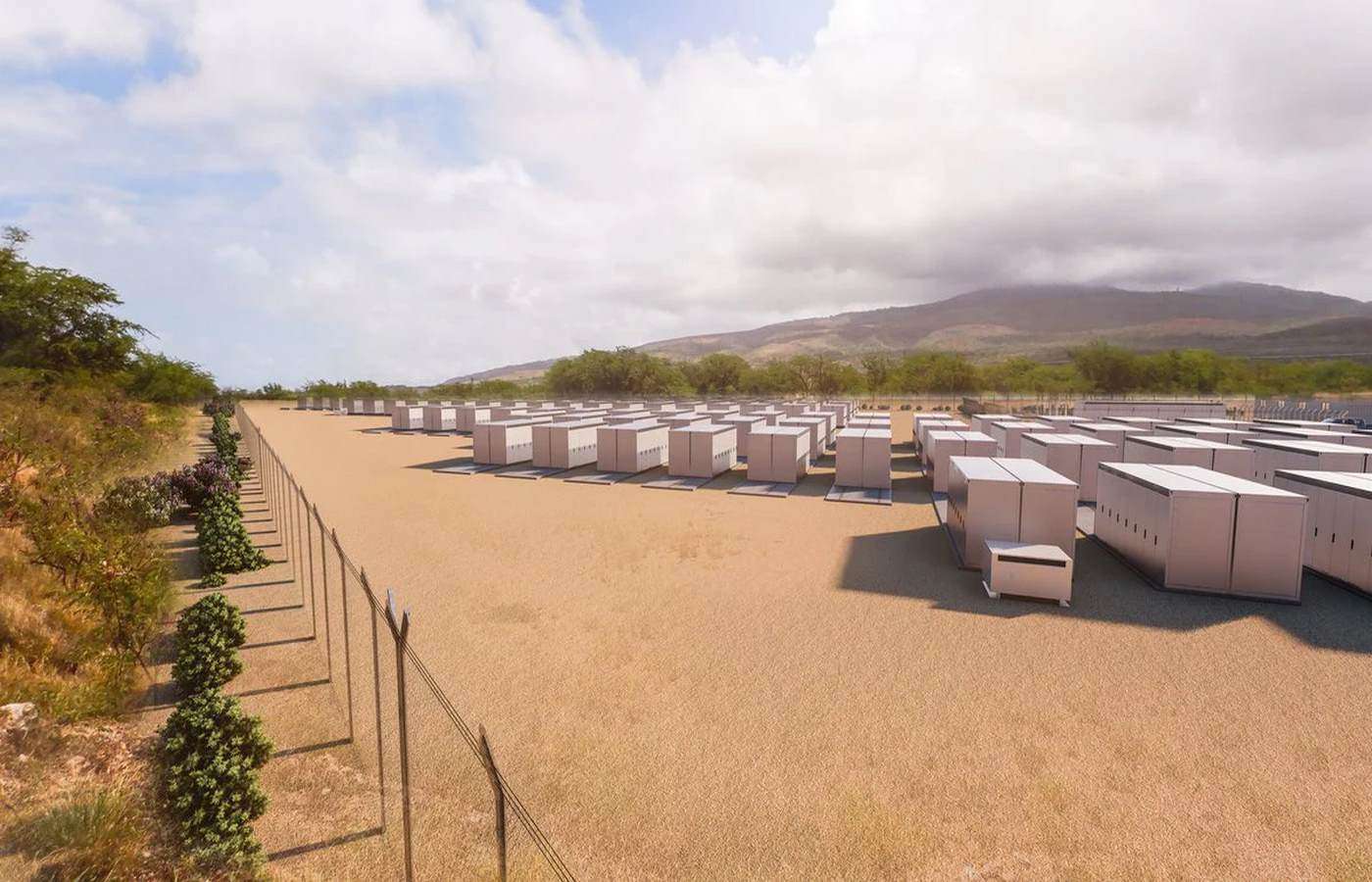He Planted a Giant Sequoia in the UK to Offset His Carbon Footprint for Life - And 700 More to Make a Forest
Henry Emson realized that planting a sequoia tree would make triply-sure his family's impact on the climate was taken care of.

Oahu aims to free itself from the shadow of a major coal-fired power plant with the introduction of 158 Tesla Energy Megapacks to installed for a 565 megawatt-hours project.
Recently, state power company Hawaiian Electric selected 16 renewable energy and battery storage projects located across three islands. Among them was Plus Power's Kapolei Energy Storage project (KES) located in Kapolei on the island of Oahu.
Oahu and Hawai'i as a whole are looking to accelerate a transition to 100% renewable energy, with the former set to decommission a coal power plant that generates 15% of the island's electricity through its 180 megawatt capacity.
KES matches this capacity, and can provide 565 megawatt-hours in total, making it one of the largest autonomous batteries in the world. The project will provide load shifting and fast-frequency response services to Hawaiian Electric, enhancing grid reliability and accelerating the integration of readily available renewable energy.
Recently, state power company Hawaiian Electric selected 16 renewable energy and battery storage projects located across three islands. Among them was Plus Power's Kapolei Energy Storage project (KES) located in Kapolei on the island of Oahu.
Oahu and Hawai'i as a whole are looking to accelerate a transition to 100% renewable energy, with the former set to decommission a coal power plant that generates 15% of the island's electricity through its 180 megawatt capacity.
KES matches this capacity, and can provide 565 megawatt-hours in total, making it one of the largest autonomous batteries in the world. The project will provide load shifting and fast-frequency response services to Hawaiian Electric, enhancing grid reliability and accelerating the integration of readily available renewable energy.
The 158 lithium-ion Megapacks come from Tesla Energy, the car maker's green energy subsidiary, and the battery project is ideally located on roughly eight acres of land in the Kapolei Harborside industrial project, where it will interconnect at a critical Hawaiian Electric substation.
With such a big leap away from trusted power sources, one of the most critical design features is to ensure that, in the case of disaster, the grid is prevented from shutting down, and that "black-start capacity" or the ability to jolt the entire grid to life in case of an interruption, is sufficient for a modern day society. KES can deliver 50 megawatts of capacity out instantaneously in such an occasion.
READ ALSO: Solar-Rich California Hits 95% Renewable Energy On a Recent Day Across 80 Percent of the State
During the day, the batteries will be there as silent sentinels absorbing excess solar energy to be distributed back into the grid once the sun goes down. This potentially prevents curtailment in the use of electricity generated by renewable sources by 69%, and may increase renewable use in the grid by 10%.
"Plus Power's selection as an energy storage provider for Hawaiian Electric is a very welcome and important step in meeting the state's renewable energy needs. We're excited to have them at Harborside," said Steve Kelly, President of the Kapolei Properties Division.
KES is expected to go live on March 10th, 2023, with returns seen from taxpayer investment before the 20-year contract period is up.
Say Aloha To Your Friends By Sharing This Sunny Story…
Be the first to comment